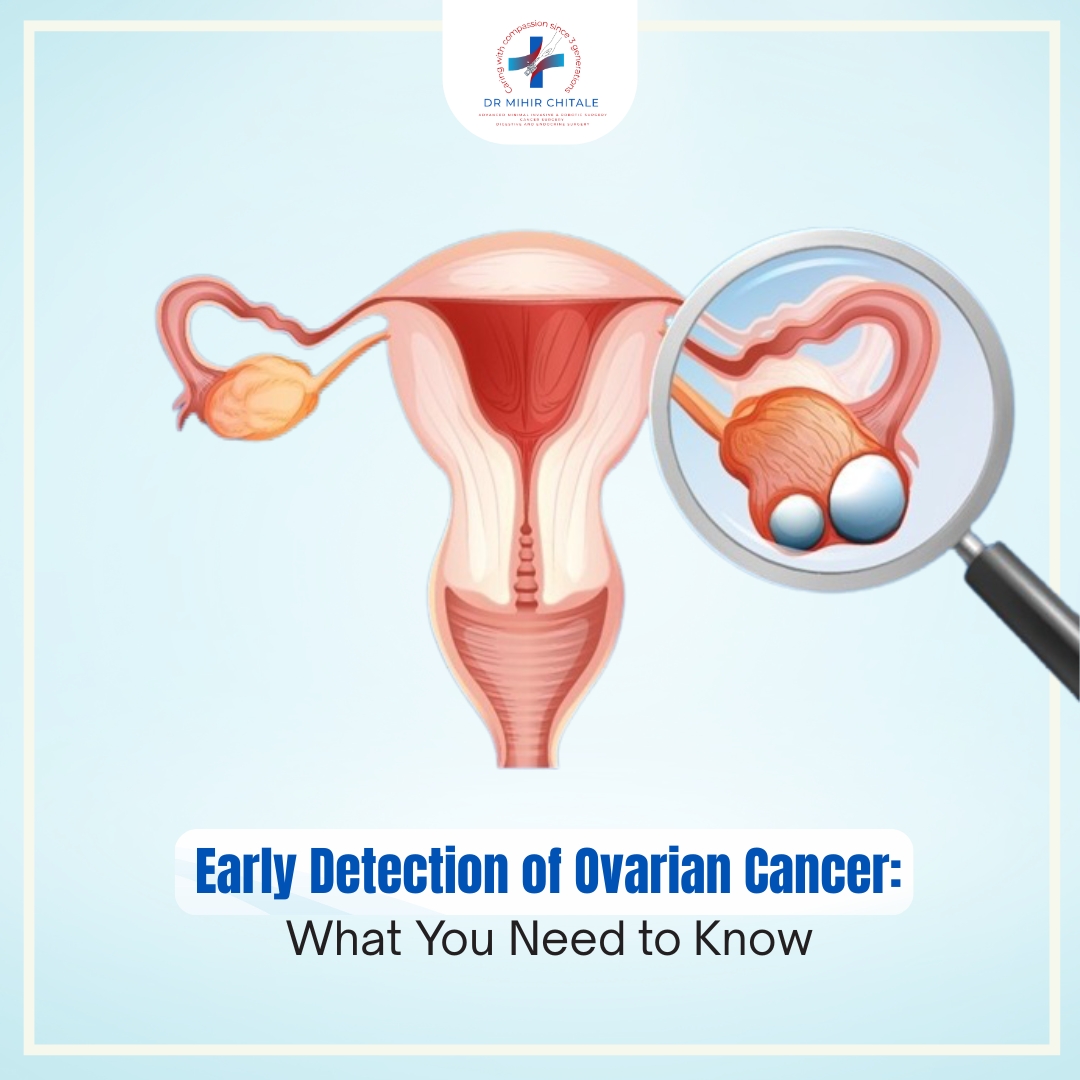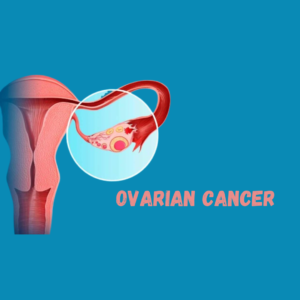
Early Detection of Ovarian Cancer: What You Need to Know

Ovarian cancer, often referred to as the “silent killer,” is notorious for its elusive nature in the early stages. Detecting it early is paramount for successful treatment and improved outcomes. In this blog, we’ll delve into the importance of early detection and explore practical steps you can take to spot ovarian cancer in its initial stages. It occurs when abnormal cells in the ovaries multiply uncontrollably, forming tumors. It primarily affects women over the age of 50, but it can occur in younger women as well.
you’re not alone in this journey. Dr. Mihir Chitale, the leading Cancer Specialist in Pune, is here to support you. With his expertise and dedication, Dr. Chitale offers compassionate care and unwavering support to help you navigate through the challenges of ovarian cancer diagnosis and treatment.
Early Detection Saves Lives
The key to combating ovarian cancer lies in early detection. When diagnosed in its early stages, before it has spread beyond the ovaries, the five-year survival rate is significantly higher. This underscores the importance of recognizing potential warning signs and seeking prompt medical attention.
Have you been diagnosed with Ovarian cancer and are seeking expert care in Pune.?
Dr. Mihir Chitale, recognized as one of the best cancer surgeons in Pune, emphasizes the importance of proactive screening and awareness to improve early detection of ovarian cancer.
Recognizing the Signs-
While ovarian cancer symptoms can be subtle, being attuned to your body can make all the difference. Some common signs to watch out for include:
- Abdominal bloating or swelling
- Pelvic or abdominal pain
- Difficulty eating or feeling full quickly
- Frequent or urgent urination
- Changes in bowel habits
- Unexplained weight loss
- Fatigue or low energy levels
Steps for Early Detection-
- Regular Check-ups:

Schedule routine visits with your healthcare provider. During pelvic exams, they can check for any abnormalities in the ovaries, uterus, or surrounding tissues.
- Know Your Risk:
Understand your personal and family medical history. Women with a family history of ovarian or breast cancer may be at increased risk and should discuss screening options with their healthcare provider.
- Transvaginal Ultrasound (TVUS):
This imaging test uses sound waves to create pictures of the ovaries. While not typically used for general screening, it may be recommended for women at high risk or those experiencing symptoms.
- CA-125 Blood Test:

CA-125 is a protein that may be elevated in the blood of some women with ovarian cancer. While not a definitive diagnostic tool, it can provide valuable information when used in conjunction with other tests.
- Genetic Counseling and Testing:
Women with a strong family history of ovarian or breast cancer may benefit from genetic counseling and testing. Identifying genetic mutations such as BRCA1 and BRCA2 can help assess the risk and guide screening and preventive measures.
Also read – Colon Cancer- Prevention, Detection, and Treatment Options
Trust Your Instincts
Above all, trust your instincts and advocate for your health. If you experience persistent symptoms or have concerns, don’t hesitate to seek medical advice. Early detection offers the best chance for successful treatment and a brighter future.
while ovarian cancer presents challenges in early detection, awareness, and proactive measures can make a significant difference. By knowing the signs, understanding your risk factors, and staying proactive about your health, you can increase the likelihood of catching ovarian cancer early and improving outcomes.
Dr. Mihir Chitale.

